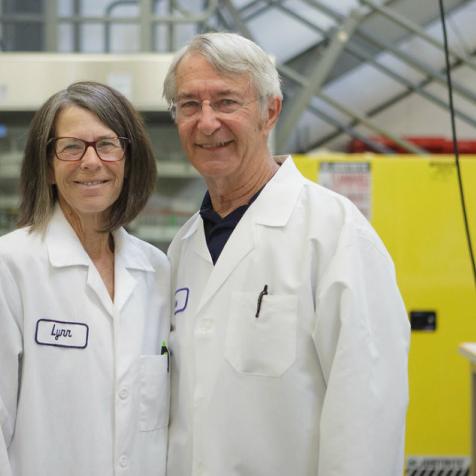
Company Details
Location
Fullerton, CA
Founded
1990
Ownership Type
Private
Employees
19
Products
Diagnostic Testing Kits
www.fullerlabs.com
Fullerton, CA
Founded: 1990
Employees: 19
Privately Owned
Industry: Bioscience and Medical
Products: Diagnostic Testing Kits
Manufacturing test kits that identify vector-borne diseases, founder Lee Fuller had a rough start before flourishing in the medical industry.
Fuller Labs is a premier provider of diagnostic testing kits for diseases spread to humans through insect or animal contact. After years of previous experience in the business of studying and developing test kits for the health industry, Lee Fuller branched out on his own in 1990 to form the company. The start-up, however, wasn’t an instant success. "I was working on my own for a couple of years," says Fuller, "I imagined I could develop tests, and companies would pay for that development. That failed. People are often too selfish to think that research and development time is worth anything, so I realized that if I didn’t start selling things directly to laboratories, I wouldn’t go very far."

Since Fuller had a five-year "non-compete" clause with his previous company, he could not sell products he had developed in the past. "Those products were all clinical,” says Fuller. “Instead, I made the veterinary equivalent and sold those to keep the body and soul of the company together, until my non-compete on the human diagnostics products ran out." Once they could get back to making human test kits, Fuller Labs flourished.
Specializing in vector-borne diseases, (spread by infected insects), and zoonotic, (spread by contact with animals), the company found its niche providing testing materials around the world through medical supply distributors. Regional and state testing labs conducting large-scale evaluations are Fuller’s main customer base. Now covering both the clinical and veterinary diagnostics areas, the Fullerton, California based company has few direct competitors anywhere in the world. "We keep producing better products and more discoveries," says Fuller in describing his company’s rise to success in the field.

Fuller Labs’ testing kits are manufactured in-house and provide all the materials needed for complete analysis and are designed to offer clear, straightforward use and interpretation of results. The Fullerton facility houses research and development, as well manufacturing, which requires employees that have some knowledge in the area they specialize in. "We’re hoarding together intellectual knowledge, some of which we’re patenting, " says Fuller. "We’re hoping this will also give us some more return on our investment for the future."
Their knowledge base is an example of how a company can utilize its assets to becoming successful in this segment of the marketplace. Their expertise is also an important factor on the manufacturing side of things. To produce test kits, workers combine the use of automation and hands-on work. In addition, microscopic analysis of organisms is a key component in finding the proper test material to react with samples. "The central part of antibody tests is having the right antigen,” says Fuller. “We grow them here for that purpose."

Other various supplies needed for the testing kits are sourced from the United States and Europe. "We’ve got PhDs in molecular biology in our R&D area, but most everyone else is trained here," says Fuller. The company often hires scientific staff with experience at competitors’ facilities because the pool of people with the specialized knowledge needed is small.
In comparison to selling against competitors’ products, Fuller says, "We’ve got distributors who will take our product to customers, do battle, and win because our products really are the best in the world." There’s not much better testimonial and a recipe for success than any manufacturer could hope for.

Challenges: Fuller Labs is in the process of becoming ISO certified in order to sell their products within additional countries around the world. Central and South America, India, Australia, and Japan are among the new markets that will be opened by the certification. "The amount of paperwork is taxing our resources," says Fuller, "We’re trying to get that done this year."
Opportunities: Once the ISO certification is complete, Lee Fuller expects a rapid expansion of the business into many more countries, especially in South America. "We’ve got top distributors lined up, and the expansion would double or triple our income."
Needs: Room for expansion is looming over the company and they’re needing more space. Continued research will allow Fuller Labs to remain at the forefront of the diagnostic testing industry, and increased manufacturing capacity will allow them to meet the needs of expected expansion of their worldwide customer base.

